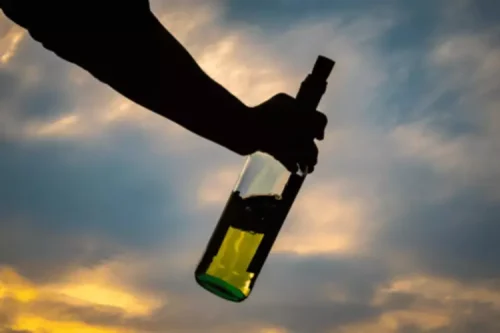
This often goes away after a time, but it can occasionally lead to lasting kidney damage. In fact, IgA glomerulonephritis—acute inflammation of the kidney caused by an IgA immune response—is one of the most common types of primary glomerulonephritis worldwide (D’Amico 1987). This IgA-related kidney disease leads to clinical symptoms of renal injury and eventually progresses into renal failure (Amore et al. 1994; Bene et al. 1988; Pouria and Feehally 1999). Experimental studies suggest that alcohol and kidneys heavy alcohol consumption induces IgA kidney disease (Smith et al. 1990). In addition, rats given intragastric infusions of a commercial whiskey (1.5 ml/100 gm body weight) 3 times a week along with a nutrient-deficient diet develop a more severe form of IgA nephropathy (Amore et al. 1994). Free radicals (also called reactive oxygen species [ROS]) are one of the by-products of alcohol metabolism and are known to cause cellular damage, unless the body can use antioxidants to clean them up.
Impaired Fluid Handling

Ethanol and polyphenol both have anti-oxidative effects and ethanol improves polyphenol absorption, thereby contributing to bioavailability [4,5,6]. Furthermore, alcohol has an anti-inflammatory effect, with increased serum interleukin-10 levels and decreased serum interleukin-16 levels [20]. Alcohol consumption can raise high-density lipoprotein cholesterol concentration [21,22], improve insulin sensitivity [23], and reduce platelet aggregation rate and fibrinolysis [21,22].

What drinks are hardest on kidneys?
However, more research is needed into the link between alcohol use and kidney injury. You may wish to swap out hard liquor for beer or wine, since these have a lower alcohol content. Keep track of your drinks using an app or a diary so you can monitor your progress. Having kidney stones increases your risk of developing hydronephrosis. Honor or remember a loved one today and your impact will be DOUBLED to help children and adults fighting kidney disease. According to the NKF, one potential symptom of AKI is flank pain, which is pain in the side of the back, between the ribs and hips.
Associated Data

According to the National Cancer Institute (NCI), there is a widesperad agreement among scientists that alcohol can cause several types of cancer, like head and neck cancer, liver cancer, colon cancer, and breast cancer. You might wonder if you can continue to enjoy a glass of wine with dinner or your favorite craft IPA. The answer will depend on a few things, including your current health.
- This is not an easy change to make; drinking can be habit-forming, especially if there is a family history of alcoholism or mental health elements, such as stress or depression, that make dependence on alcohol likely.
- However, more research is needed into the link between alcohol use and kidney injury.
- The symptoms and severity of a UTI may get worse after drinking alcohol.
- In this article, learn more about the causes of kidney pain and how they might be related to drinking alcohol.
1. Data Collection

Alcohol causes changes in the function of the kidneys and makes them less able to filter the blood. Alcohol also affects the ability to regulate fluid and electrolytes in the body. When alcohol dehydrates (dries out) the body, the drying effect can affect the normal function of cells and organs, including the kidneys. In addition, alcohol can disrupt hormones that affect kidney function.

Can You Drink Alcohol with Chronic Kidney Disease?
Due to the metabolism of ethanol, significant amounts of acetate are produced and subsequently incorporated into acetyl-coenzyme-A, a molecule that participates in metabolism of proteins, lipids, and carbohydrates. Protein acetylation—adding an acetyl group to a protein—is integral to regulating processes controlled by mitochondria, https://ecosoberhouse.com/ including fatty acid metabolism and antioxidant defense (Choudhary et al. 2014). This could also be a significant factor contributing to ethanol-induced mitochondrial dysfunction in the kidneys (Harris et al. 2015). The clinic notes that acute kidney failure as the result of alcoholism can develop in a matter of days or even hours.
Treatments for chronic kidney disease
Indeed, liver transplantation is one of two options available today for treating hepatorenal syndrome. Gonwa and Wilkinson (1996) reported a 4-year survival rate of 60 percent in hepatorenal syndrome patients who received a liver transplant, which constitutes a major step forward, considering the previous uniformly fatal course of the disease. Chronic alcoholism is the leading cause of low blood levels of magnesium (i.e., hypomagnesemia) in the United States (Epstein 1992). Often it occurs simultaneously with phosphate deficiencies, also frequently encountered among alcoholic patients. Hypomagnesemia responds readily to magnesium supplementation treatment, however.
TAKE A FREE KIDNEY HEALTH CLASS
Another theory suggests that both enzymes may undergo the process of uncoupling due to oxidation or lack of critical coenzymes (e.g., tetrahydrobiopterin). Uncoupling eventually leads to generation of damaging ROS like superoxide anion, instead of the vasorelaxant nitric oxide that maintains normal blood flow in the kidney. Preventing the risk of kidney disease entails taking care of your heart and weight.